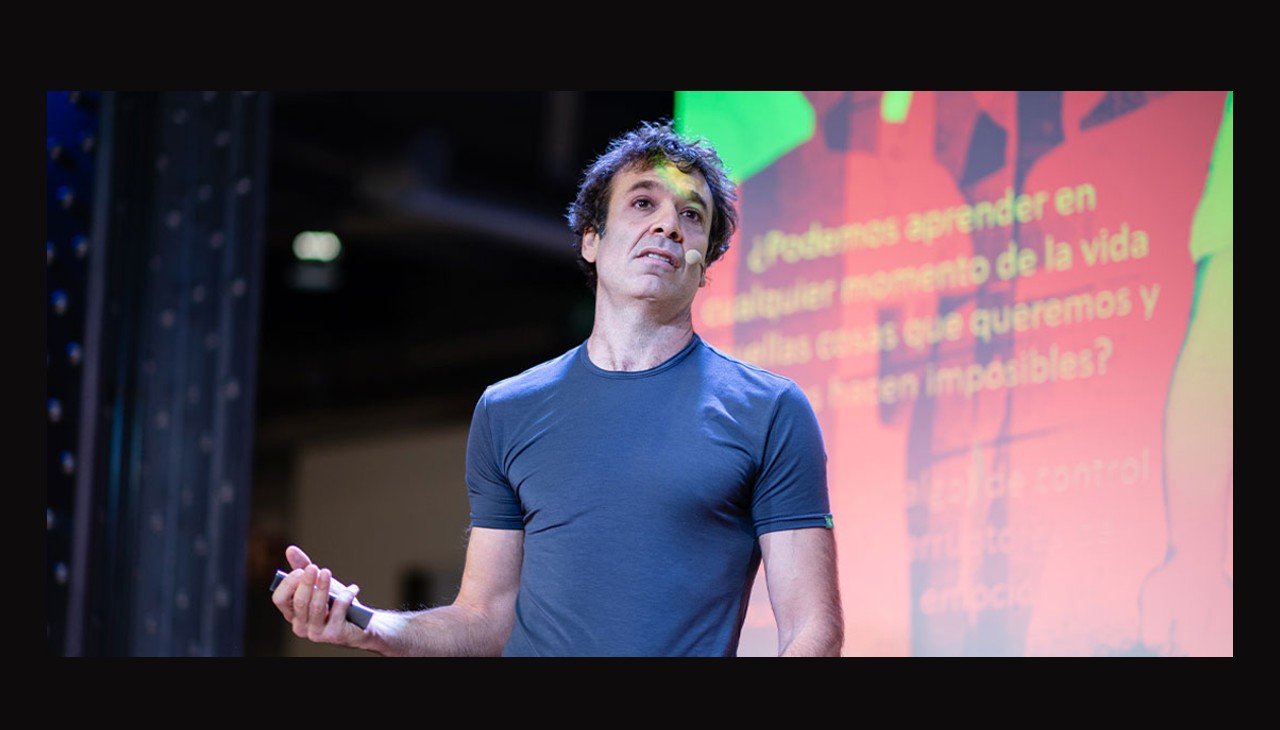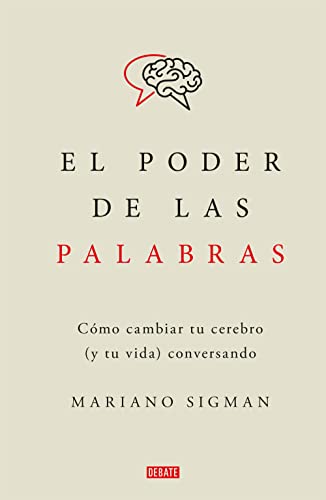
"My book is an ode to conversation as a space to clarify ideas"
In his new book, 'The Power of Words,' Argentine neuroscientist Mariano Sigman offers advice on how to learn to control our emotions through conversation.
Mariano Sigman is one of the best-known neuroscientists and popularizers in the Spanish language, but he has a small "defect": he has no musical skills. "A complete donkey," as he himself says. It was that inability to make or appreciate music that prompted him four years ago to conduct an experiment: he signed up for a four-hour-a-day singing course ("and after that I was still pretty bad") to prove to himself that he could compose an album, something he had assumed since he was a child that he could not.
"It wasn't a pleasant journey, especially for the others, but I got to compose some songs that were more or less worthy, and that filled me with illusion," Sigman explained at a recent conference at Madrid's Espacio Fundación Telefónica on the occasion of the presentation of his new book, El Poder de las Palabras. Cómo cambiar tu cerebro (y tu vida) conversando (Debate, 2022) .

In the book, Sigman, based on his research on how the brain works, tries to answer a series of basic questions that have been with humanity for more than 2,000 years: how do we think more clearly about the things that matter to us? How do we improve the bond with our closest people? How do we better manage situations in our emotional life that overflow? How do we reach those places that had been forbidden to us (in his case, music)?
"These are questions that challenge us, that concern us all, old questions that the Greeks already asked themselves and that fiction continues to ask itself, from Homeric tales to Proust or Hollywood," said the renowned neuroscientist during the conference. "So I decided to ask Science what tools we have to answer these questions posed by Humanities."
According to Sigman, who holds a doctorate in neuroscience from Rockefeller University, New York, a Postdoc from College de France in Paris and is one of the directors of the Human Brain Project, a consortium of European researchers dedicated to the study and understanding of the human brain, our brains are too structured in ideas, habits, assumptions and automatisms that we have been carrying since we were children, and to learn to think differently, one of the most effective tools at our disposal is conversation with others.
"We should not stay with our own ideas, we have to look for other people, better if they don't think like us, to take us out of our comfort zone," csaid the neuroscientist, assuring that many of our conversations stagnate because the brain has a natural tendency to laziness.
"Most of our conversations are the ones that nothing would happen if they didn't happen. Instead, we remember the ones that marked us, the ones we learned something from, the ones that made us uncomfortable," he explained.
To make himself understood, Sigman compared the exercise of conversing with others and with oneself with the exercise of listening to music.
"It is not the same to listen to music in low resolution, when it sounds like a murmur, as it is to listen to it in high resolution, when voices and instruments and melodies are distinguishable," he said. "When it comes to listening to our ideas sometimes you have to learn to distinguish which voices are more important than others."
RELATED CONTENT
"My book is an ode to conversation as a space to clarify ideas," concluded the neuroscientist, warning of the risk posed by loneliness. And loneliness does not mean living alone, or not having a partner, but not having someone to talk to about the things that matter to us, such as, for example, an important medical decision when one suffers from a serious illness and is afraid.
"Better decisions are made after talking it over with someone," she said, inviting the reader to think about whether he or she has that confidant by their side, "that person who doesn't judge us from anywhere."
"If you don't have it, look for it," he insists.
Finally, Sigman asks in the book why we tend to have the "roughest" conversations with the people we love the most, and how to learn to handle them differently. To understand why, he gives a very simple example: imagine walking down the street and seeing a stranger fall. The usual impulse is to go to their aid, to ask them if they have hurt themselves, moved by a feeling of compassion. But when the person who falls is a loved one, a parent, a child... then our impulse is to get angry and say 'I told you so.'
"Because it's a close bond, what happens is that you're afraid, you are pushed by fear. What you want to do is to indoctrinate, to do pedagogy, you are blinded by your love for the other. But science shows that doing that is useless. Bullying is a well-intentioned reflex, but a bad reflex," Sigman explains.
Changing this habit is not easy, it requires effort and predisposition. And that's precisely what his book is about: "how to try to have better conversations with the people we love the most," he concluded.
In 2017, Sigman published The Secret Life of the Mind, where he wrote about "the most candid, memorable, and fascinating discoveries" in his career of 20 years in neuroscience: the mind of newborns, the reasons and lack thereof for our decisions, the consciousness and its trips, dreams, memory, learning and from there to pedagogy and education.
The Secret Life of the Mind became an international best-seller. It has been translated to English, Italian, Portuguese and Ukrainian and is being translated to French, Turkish, Russian and Chinese.












LEAVE A COMMENT: